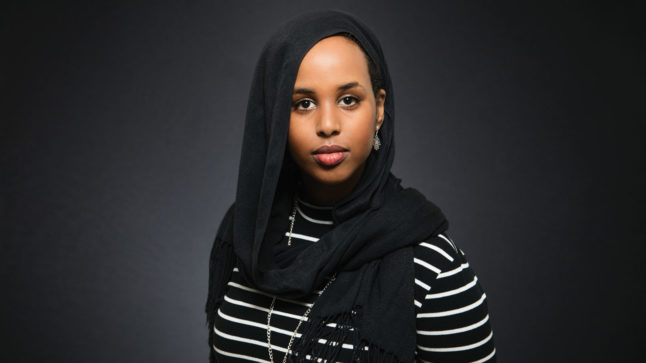Speaking to The Local for the Sweden in Focus podcast, out this Saturday, Osman said she understood why the police had allowed the demonstrations to go ahead in the first place but that the safety of civilians and police officers should have taken precedence when the counter-demonstrations turned violent.
“Just to be clear, I don’t think it’s an easy question. I think everyone, regardless of views or beliefs, should have the right to demonstrate,” said Osman, who writes for the left-wing Dagens ETC newspaper and previously lectured for the anti-racist Expo Foundation.
“I understand people who say that violence [from counter-demonstrators] shouldn’t be a reason to stop people from demonstrating. I truly believe that. But at the same time: was it worth it this time when it’s about people’s lives and safety?”
Police revealed on Friday that at least 104 officers were injured in counter-demonstrations that they say were hijacked by criminal gangs intent on targeting the police.
Forty people were arrested and police are continuing to investigate the violent riots for which they admitted they were unprepared.
“I think the police honestly misjudged the situation. I understand why Paludan was allowed to demonstrate the first day. It’s not the first time he has burned the Koran in Sweden. When he burned the Koran in Rinkeby last year nothing happened. But this time it was chaos.”
Osman noted that Rasmus Paludan did not even show up for a planned demonstration in her home city of Linköping – but the police were targeted anyway.
“I know people who were terrified of going home. I know people who had rocks thrown in their direction, not to mention the people who worked that day, policemen and women who feared for their lives. So for the safety of civilians and the police the manifestations should have been stopped at that point. Instead it went on, not only for a second day but also a third day and a fourth day.”
On the question of whether it was acceptable to burn Islam’s holy book, Osman said it depended on the context.
“If you burn the Koran mainly to criticise religion, or even Islam, of course it should be accepted in a democracy. The state should not only allow these things, but also protect people that do so.
“I do believe that. Even as a Muslim. That’s an important part of the freedom of speech.
A previous recipient of an award from the Swedish Committee Against Antisemitism for her efforts to combat prejudice in society, Osman drew parallels with virulent anti-Semitism and said it was “terrifying” that Paludan was being treated by many as a free speech campaigner rather than a far-right extremist.
“If you are a right-wing extremist that wants to ethnically cleanse, that wants to cleanse Muslims from Sweden, and therefore burn the Koran, it’s actually dumb to think that this is a question about freedom of speech. When Nazis burn everything Jewish it’s not a critique against Judaism, it’s anti-Semitism.”
Anti-Muslim sentiment in Sweden tended to come in waves, Osman said, pointing to 9/11 and Anders Behring Brevik’s attacks in Norway as previous occasions when Islamophobia was rampant. Now the Easter riots had unleashed a new wave of hatred against Muslims that she described as “alarming” and the worst yet.
“I do believe that we will find a way to coexist in our democracy. But we have to put in a lot work. And Muslims can’t do that work alone. We need allies in this.”
Listen to more from Bilan Osman on the April 23rd episode of Sweden in Focus: Why Sweden experienced its worst riots in decades.



 Please whitelist us to continue reading.
Please whitelist us to continue reading.
Member comments